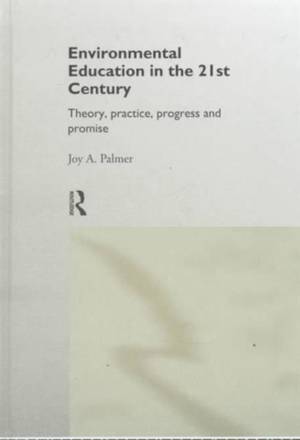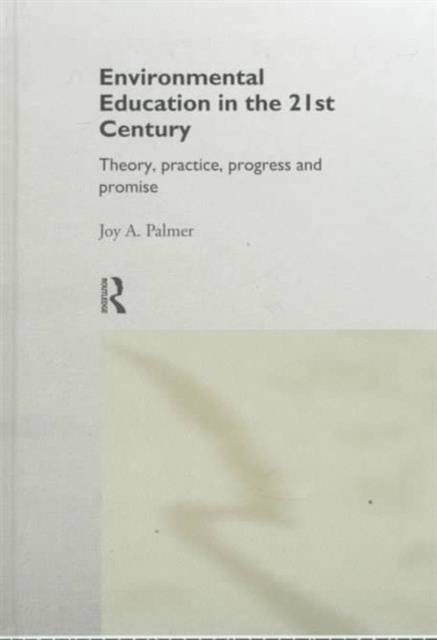
- Afhalen na 1 uur in een winkel met voorraad
- Gratis thuislevering in België vanaf € 30
- Ruim aanbod met 7 miljoen producten
- Afhalen na 1 uur in een winkel met voorraad
- Gratis thuislevering in België vanaf € 30
- Ruim aanbod met 7 miljoen producten
Zoeken
Environmental Education in the 21st Century
Theory, Practice, Progress and Promise
Joy Palmer
Hardcover | Engels
€ 496,45
+ 992 punten
Uitvoering
Omschrijving
Environmental education is a field characterised by a paradox. Few would doubt the urgency and importance of learning to live in sustainable ways, but environmental education holds nowhere near the priority position in formal schooling around the world that this would suggest. This text sets out to find out why this is so. It is divided into six parts: Part 1 is a concise history of the development of environmental education from an international perspective; Part 2 is an overview of the 'global agenda', or subject knowledge of environmental education; Part 3 introduces perspectives on theory and research in environmental education; Part 4 moves on to practice, and presents an integrated model for planning environmental education programmes; Part 5 brings together invited contributors who talk about environmental education in their own countries - from 15 countries including China, South Africa, Sri Lanka and the USA; Part 6 returns to the core questions of how progress can be made, and how we can maximise the potential of environmental education for the twenty first century.
Specificaties
Betrokkenen
- Auteur(s):
- Uitgeverij:
Inhoud
- Aantal bladzijden:
- 298
- Taal:
- Engels
Eigenschappen
- Productcode (EAN):
- 9780415131964
- Verschijningsdatum:
- 1/01/1998
- Uitvoering:
- Hardcover
- Formaat:
- Genaaid
- Afmetingen:
- 156 mm x 234 mm
- Gewicht:
- 594 g

Alleen bij Standaard Boekhandel
+ 992 punten op je klantenkaart van Standaard Boekhandel
Beoordelingen
We publiceren alleen reviews die voldoen aan de voorwaarden voor reviews. Bekijk onze voorwaarden voor reviews.











